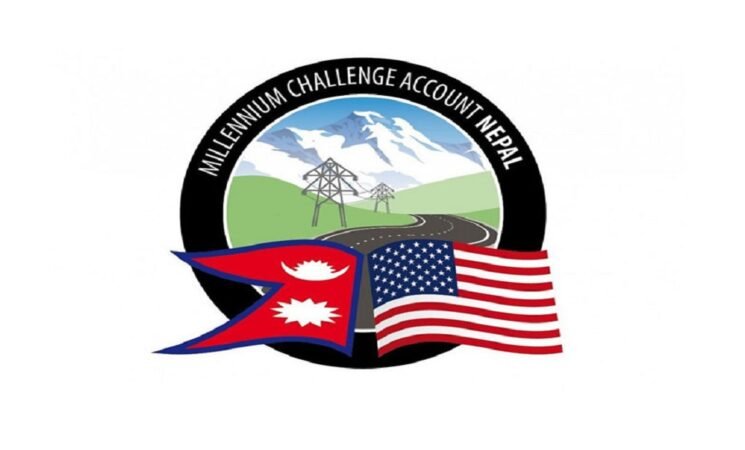23 August 2025, NIICE Commentary 11612
Qin Hong
The resumption of the Millennium Challenge Corporation (MCC) compact in Nepal has revived debates over its significance for the country’s development trajectory and foreign policy. After years of political contestation and public skepticism, the MCC compact was approved by Nepal’s Parliament in 2022. However, it was suspended in early 2025 due to policy changes during President Trump’s second term. It was not until July 2025 that the MCC has been allowed to resume the $500 million grant projects in Nepal.
For Nepal, a small but strategically located state navigating between powerful neighbors and global players, the MCC compact carries more than just infrastructure implications. It is equally about how Nepal positions itself in an evolving Indo-Pacific landscape while addressing its urgent developmental needs.
Economic and Developmental Significance
The MCC-Nepal compact represents the largest single grant Nepal has ever received from a bilateral partner. The funding is designed to be invested primarily in two sectors, namely, electricity transmission and road maintenance. If effectively implemented, these investments could transform Nepal’s economic landscape.
Nepal’s economy remains heavily reliant on agriculture and remittances, with poor infrastructure acting as a bottleneck for industrialization and trade. The construction of high-capacity electricity transmission lines under the MCC- Nepal is critical for connecting Nepal’s hydropower plants with regional markets. Nepal has long spoken of its hydropower potential, estimated at over 40,000 MW technically feasible capacity, but has struggled to harness and monetize this resource. The MCC-Nepal provides the physical backbone needed to export surplus power to India and potentially Bangladesh, creating a pathway for Nepal to transition from an energy-deficient to an energy-exporting nation.
The road maintenance component is equally critical. Nepal’s road infrastructure remains highly vulnerable to natural disasters and poor maintenance. This not only raises transport costs but also isolates rural communities and weakens competitiveness. Upgrading and maintaining critical road networks not only boosts domestic commerce but also integrates Nepal more effectively with South Asian markets. These projects have the potential to catalyze growth, generate employment, and lay the groundwork for long-term economic transformation.
Energy and Clean Development Implications
Beyond immediate infrastructure gains, the MCC-Nepal compact holds strategic value for Nepal’s clean energy ambitions. As the global shift toward renewable energy accelerates, countries with untapped resources stand to benefit from green partnerships. Nepal’s hydropower potential is particularly valuable in South Asia, a region facing rising energy demand and high carbon emissions.
The MCC-funded transmission lines will enable Nepal to export surplus clean electricity to its neighbors, replacing fossil-fuel-based energy and contributing to regional decarbonization. For Nepal, this means both revenue generation and a stronger position in global climate diplomacy. Moreover, better-maintained roads will reduce fuel wastage, lower emissions, and create more resilient supply chains.
In this way, the MCC can help Nepal to complement its commitments under the Paris Agreement and its broader vision of green development. By integrating energy infrastructure with sustainable practices, Nepal is not only pursuing economic modernization but also positioning itself as a regional contributor to decarbonization.
Geopolitical Significance
While the MCC is framed as a development partnership, its geopolitical undertones are hard to ignore. It is widely interpreted as part of the U.S. Indo-Pacific Strategy, often viewed as a counterbalance to China’s Belt and Road Initiative (BRI). This framing has fueled political controversies within Nepal, with critics warning that the compact could undermine sovereignty or drag Nepal into great-power rivalries.
For Nepal, however, the MCC represents both opportunity and risk. On the one hand, it diversifies Nepal’s development partnerships, reducing overdependence on India and China. Having the U.S. as a major development partner strengthens Nepal’s diplomatic leverage and reinforces its strategic autonomy. On the other hand, the politicization of the compact highlights the challenge Nepal faces in balancing relations with its two giant neighbors while engaging with external actors. India has generally supported the MCC, recognizing that improved transmission lines will facilitate cross-border electricity trade, which aligns with its own energy security goals.
Ultimately, the MCC highlights Nepal’s growing relevance in the Indo-Pacific. Even development aid is no longer politically neutral, making Nepal’s traditional non-alignment more difficult to sustain. Yet, careful diplomacy can allow Nepal to benefit from multiple partnerships while safeguarding its sovereignty.
Challenges and Criticisms
The MCC compact has not been without controversy in Nepal. Critics have raised concerns about clauses granting certain immunities to MCC projects, questioning whether these undermine sovereignty. Others worry about the compact’s association with U.S. strategic interests, fearing Nepal could become a pawn in external rivalries.
Beyond politics, implementation remains a practical challenge. Nepal has long struggled with bureaucratic inefficiency, frequent government changes, and weak project management. Without transparency, accountability, and strong institutional capacity, the compact risks delays, cost overruns, and erosion of public trust.
Moreover, the benefits of the MCC must be equitably distributed. For ordinary Nepalis to support such projects, they must see tangible improvements in their daily lives—whether through more reliable electricity, lower transport costs, or new employment opportunities. Otherwise, the compact risks being seen as another elite-driven initiative with limited impact on grassroots development.
Conclusion
The resumption of the MCC-Nepal compact represents more than a financial injection; it is a test of Nepal’s ability to harness international partnerships for national transformation. Its success will be measured domestically, not internationally. Beyond infrastructure, it symbolizes Nepal’s growing relevance in the Indo-Pacific, where development and geopolitics are increasingly intertwined.
If managed wisely, it could help Nepal move from reliance on remittances toward a future as a clean energy exporter and regional connector. Conversely, if mismanaged, it risks deepening political polarization and public disillusionment. The stakes, therefore, are not only about roads and power lines but also about whether Nepal can convert external aid into sustainable and sovereign-driven development.
Qin Hong is a PhD candidate at Kathmandu University, with research interests in Nepal’s foreign policy, South Asian development, and international political economy.

